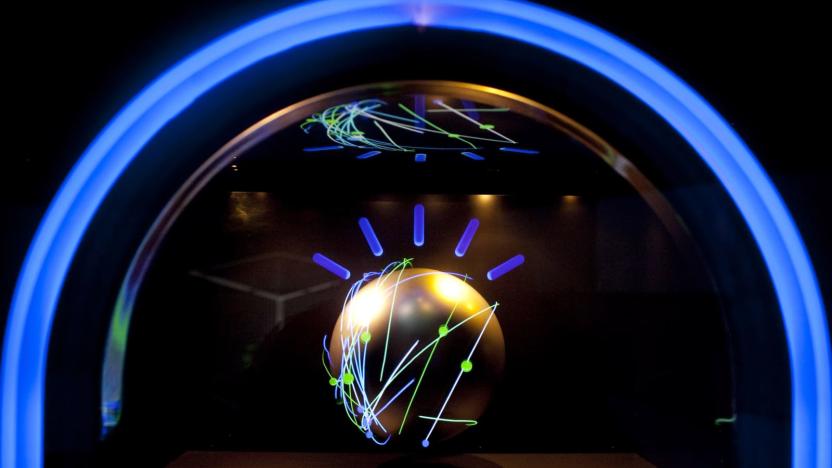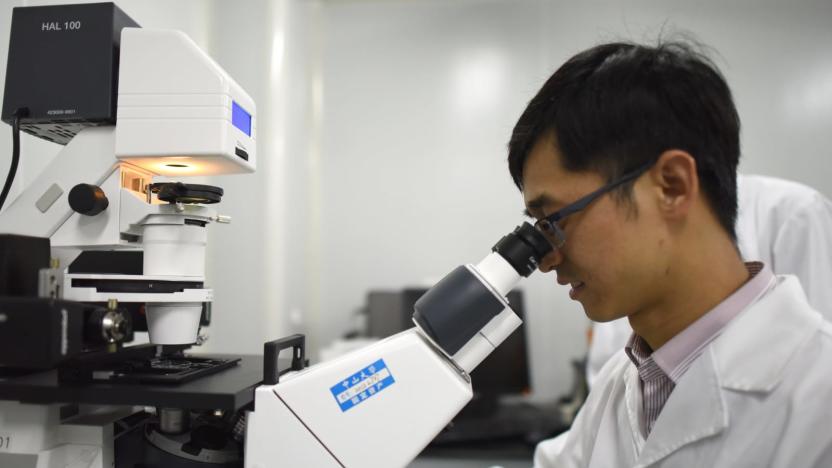oncology
Latest

IBM extends deal using Watson to support veterans with cancer
IBM is making further use of Watson in the fight against cancer. The tech giant has extended a team-up with the US Department of Veterans Affairs that taps Watson for help treating soldiers with cancer, particularly stage 4 patients who have few other options. The new alliance runs through "at least" June 2019 and will continue the partnership's existing strategy. Oncologists and pathologists first sequence tumor DNA, and then use Watson's AI to interpret the data and spot mutations that might open up therapeutic choices.

Navajo Nation may undo genetic research ban in hopes of better care
The Navajo Nation banned genetic studies in 2002 due to concerns over how its members' genetic material would be used, but, as Nature News reports, the Navajo are considering a reversal of that policy. An oncology center is set to open next year on Navajo lands and the tribe's research-ethics board is looking into allowing some genetic research to take place at the facility.

FDA approves a more 'personalized' cancer drug
Cancer treatments are becoming more personal. The Food and Drug Administration recently gave accelerated approval for Keytruda, a pre-existing drug from Merck, for use on patients diagnosed with solid tumors containing a specific biomarker. Rather than basing treatment on where the mutation originated, Keytruda will be used to treat microsatellite instability-high (MSI-H) cancers, those that are mismatch repair deficient (dMMR) and are otherwise not able to be surgically removed. These types of tumors affect how the DNA is repaired inside the cell.

Watson-based cancer project paused after running aground
It's tempting to treat IBM's Watson as a cure-all: just throw some cognitive computing at the problem and you'll make everything better. That can only happen if it's well-implemented, however, and we've just seen what happens when things go awry. The University of Texas' MD Anderson Cancer Center has put its highly-touted Watson project (the Oncology Expert Advisor) on hold after an audit discovered both spending issues and an unfocused strategy that didn't meet goals.

Rudy Giuliani will advise Trump on cybersecurity
During an appearance on Thursday's Fox & Friends talk show, former NYC mayor Rudy Giuliani announced that he would be forming a cybersecurity team for President-elect Trump. According to the Trump Transition's official announcement, the team would advise the President-elect on issues "concerning private sector cyber security problems and emerging solutions developing in the private sector." Presumably, this will entail more than simply writing things down on paper and having them delivered by courier.

China completes first human trial with CRISPR-edited genes
As predicted, it happened: On October 28th, Chinese oncologists at Sichuan University were the first in the world to insert CRISPR-modified cells into a patient suffering from an aggressive form of lung cancer, according to Nature. The journal reports that this first round of treatment in a safety trial went well enough to warrant a second injection of the Cas9-edited cells, and that nine more people will undergo the treatments in the future. From there, the patients will be monitored for at least six months, if not longer, to "determine whether the injections are causing serious adverse effects."

Your search history could be an early detector for lung cancer
"You may have lung cancer. Please consult a physician." That'd very likely be the worst alert you could ever see on your phone, right? In the future, though, it could be a reality. By looking at anonymous search history and cross-referencing it with demographic data, scientists from Microsoft Research propose that 39 percent of oncology diagnosis could be made a year earlier -- no Watson required. It definitely sounds like something out of Minority Report, but applied to healthcare.

Doctors grow tumors that roll up like toilet paper
Modern medicine still takes a decidedly ham-fisted approach to treating cancer -- it attacks with radiation and chemotherapy drugs that are just as toxic to healthy tissues as they are to tumors. What's more the effects of these treatments vary between patients. However, a novel (albeit gag-inducing) new research method from the University of Toronto hold the key to personalizing oncology: 2D tumors grown from the patient's own genetic material.

Researchers working on nanobots that directly attack tumors to cure cancer
For all the advancements we've made with technology and medicine, a cure for cancer still eludes us. But maybe that's because we haven't enlisted nanoparticles to attack tumors just yet. New research from the University of California's Davis Cancer Center, spotted by PhysOrg, suggest that could be a reality sometime soon. By attaching a tumor-recognition module to a nanorobot, doctors would be able to both diagnose a cancerous growth and inject drugs directly into the carcinoma. This would effectively target only the malignant cells and leave the surrounding areas unharmed -- taking things a few steps further than, say, the nanodiamonds we've heard of. It's a stark contrast to how chemotherapy treatment typically works, too, which is a blanket attack on all of a certain type of cell that often inflicts as much collateral damage as it does good. Who knows, a world where cancer patients don't have their hair or bone marrow destroyed during treatment might not be too far off after all. [Image credit: Shutterstock / StockLite]



